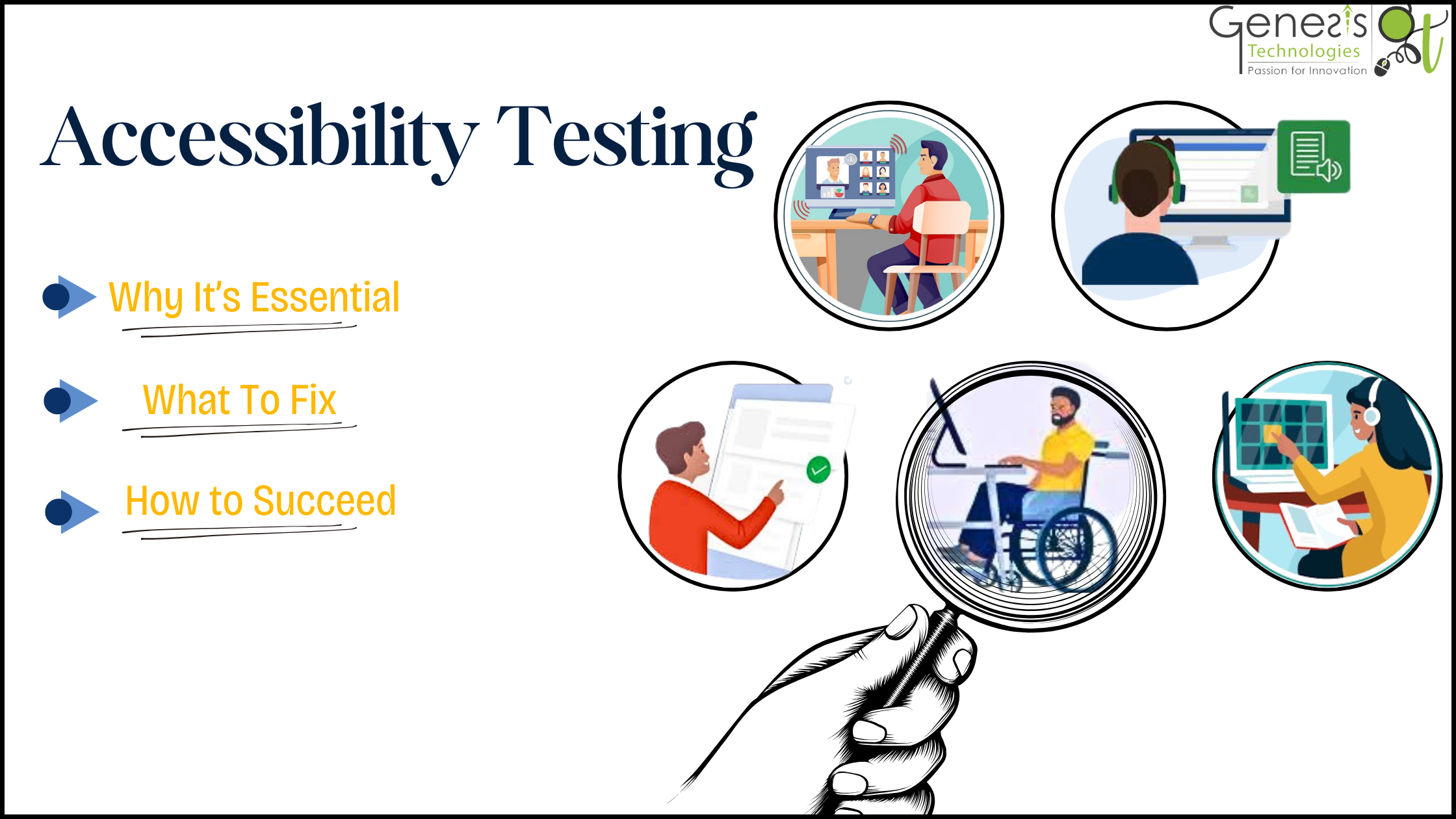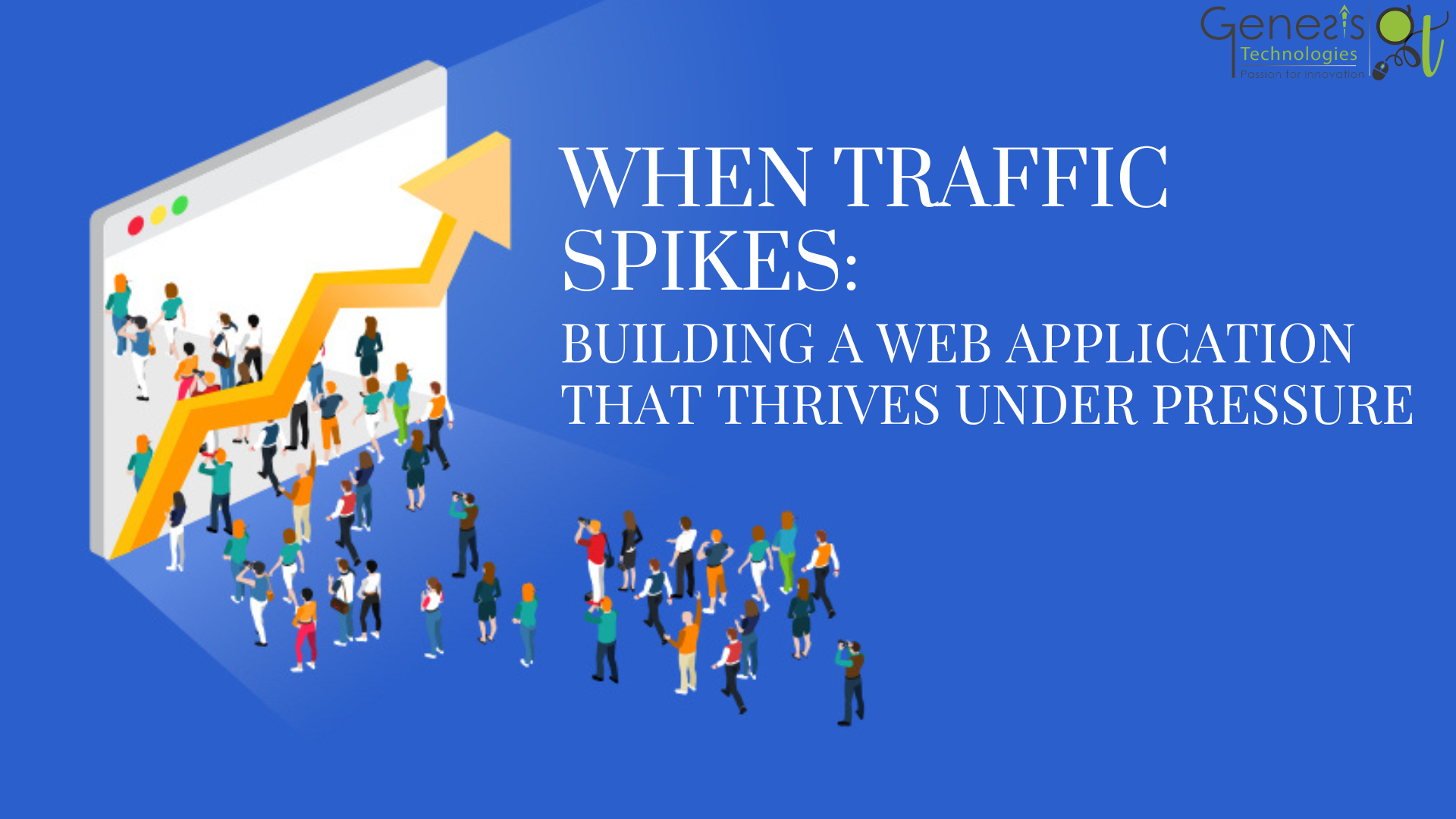Revolutionizing ML Testing Automation: A 10x Efficiency Breakthrough
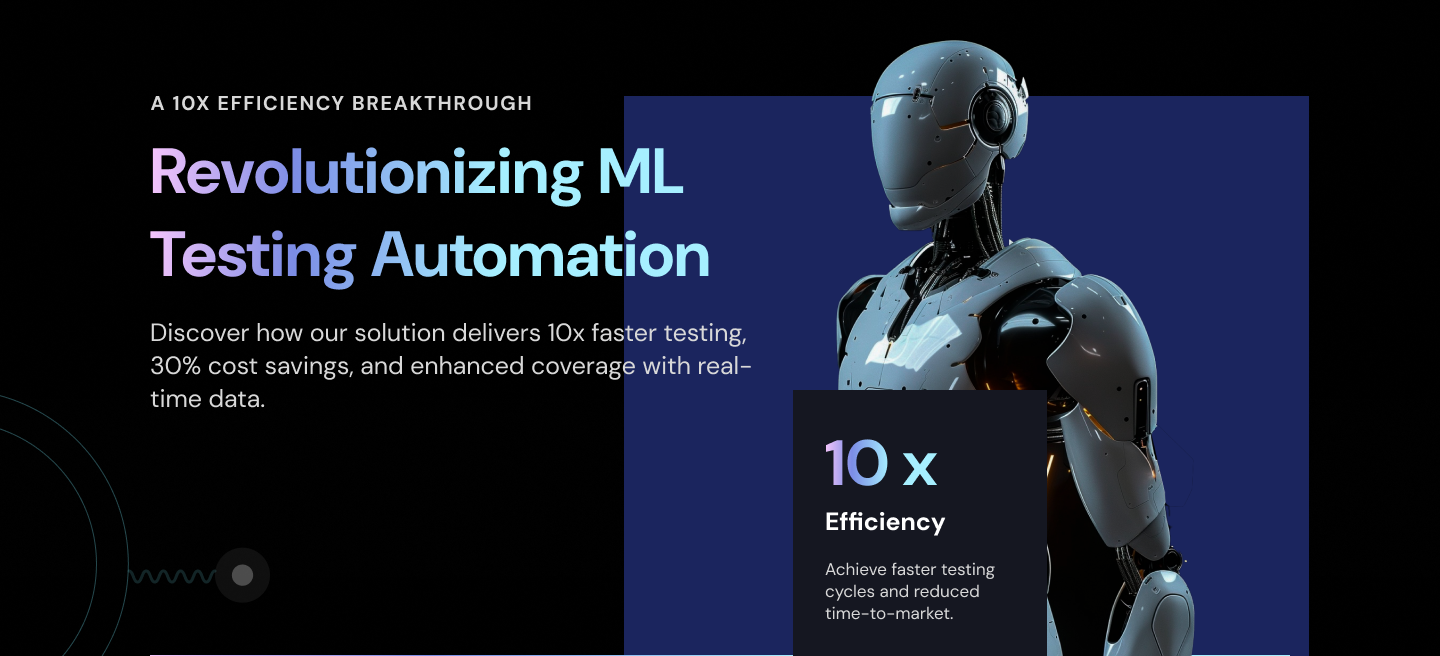
Introduction: The Industry Context
The rapid adoption of Machine Learning (ML) applications is transforming industries, from finance and healthcare to retail and automation. However, with this rapid adoption comes a major challenge: ensuring model accuracy, robustness, and scalability through rigorous testing. Testing ML applications demands robust methodologies to validate models across diverse datasets, ensuring their accuracy and reliability.
Key Industry Statistics:
- 40% of ML development time is spent on testing and debugging models (McKinsey & Co.).
- UI-based testing can take 5–10x longer than automated, API-driven approaches.
- ML applications require continuous testing, but traditional methods struggle to keep up with rapid iterations.
Key Challenges in Traditional ML Testing
| Challenge | Impact |
|---|---|
| Time Taking Process | Manually inputting test data through UI is inefficient and time-consuming. |
| Scalability Issues | Running large-scale tests across multiple accounts and datasets has many practical challenges. |
| High Costs | Manual and UI-based testing result in higher expenses. |
| Limited Scenario Coverage | Edge cases are often missed, leading to potential failures in real-world applications. |
| Inconsistent Results | Human errors and test environment limitations cause variability in test outcomes. |
To address these issues, we developed a cutting-edge testing automation solution that reduces testing time by 10x while improving scalability, accuracy, and cost efficiency.
The Testing Landscape in Machine Learning
Traditional Testing Methodologies and Their Limitations
- UI-Based Data Generation: Slow, repetitive, and prone to human error.
- Manual Scenario Testing: Lacks scalability, making it inefficient for iterative model improvements.
- Multi-Account Complexity: Managing multiple user sessions and testing across environments is challenging.
The Cost of Inefficient Testing
- Delays in Deployment: Prolonged test cycles slow down product releases.
- Resource Wastage: Engineers spend significant time on repetitive tasks instead of innovation.
- Compromised Model Performance: Inadequate test coverage leads to unreliable ML predictions.
Our Innovative Solution
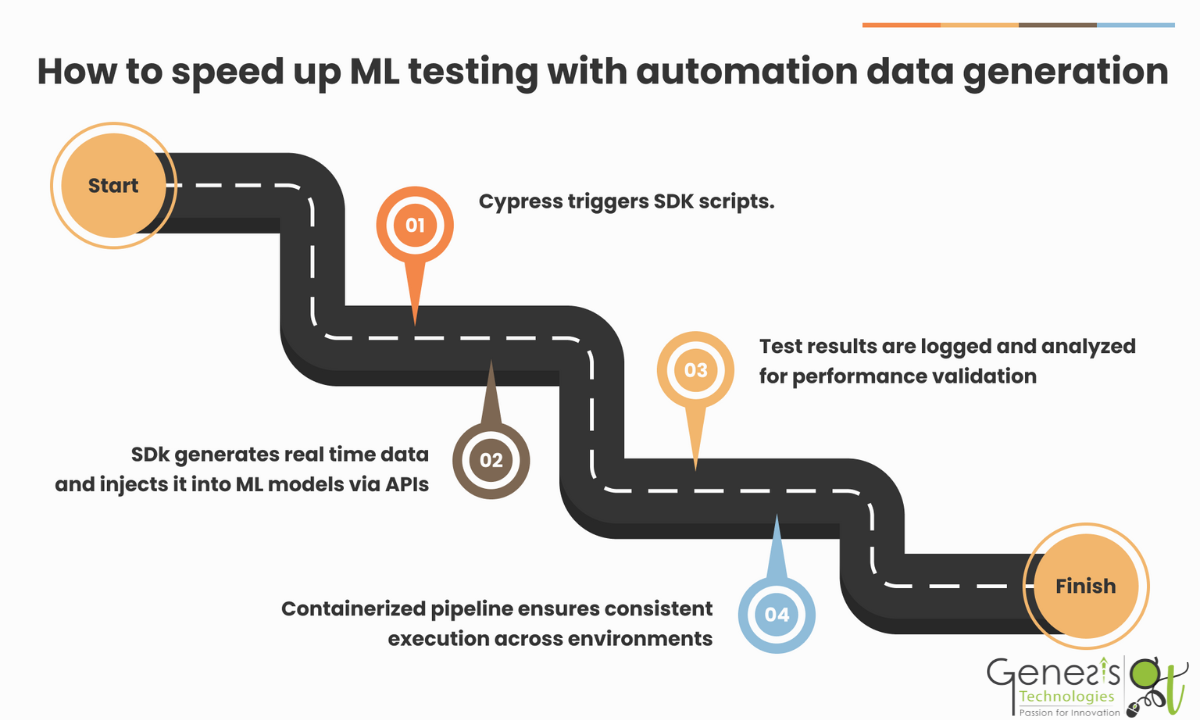
We implemented a hybrid testing framework that integrates Cypress, Python SDK scripts, and containerization, revolutionizing ML testing by drastically improving efficiency and scalability.
Key Features of Our Solution
- Cypress for Automation: Acts as the central test framework, triggering Python SDK scripts for real-time data generation.
- Python SDK for Intelligent Data Generation: Bypasses UI interactions, enabling programmatic data to create accurate data consistently in seconds.
- Containerization for Scalability: Ensures a consistent testing pipeline is containerized for seamless deployment across environments.
How It Works
- Step 1: Cypress triggers Python SDK scripts to generate test data dynamically.
- Step 2: The SDK injects real-time data directly into ML models via APIs.
- Step 3: The system validates model outputs, ensuring correctness and performance consistency.
- Step 4: The entire workflow runs in containerized environments, making it scalable and repeatable.
Technical Architecture
Solution Components
- Cypress Test Framework: Orchestrates automation and integrates with external libraries.
- Python SDK: Generates and feeds structured data directly into ML applications.
- API Integration: Facilitates seamless interaction between test scripts and ML models, ensuring real-time testing and scenario validation.
- Containerization Strategy: Encapsulates the pipeline for cross-platform deployment.
SDK Script Using Cypress Commands:

SDK Script in Test Case:

DockerFile:

Implementation Approach
Methodology
- Hybrid Automation: combines UI capabilities of Cypress with the efficiency of programmatic Python SDK execution.
- Real-Time Data Integration: Enables dynamic scenario testing with real-world-like datasets.
- Scenario Adaptation: Adjusts test parameters dynamically to cover edge cases to achieve improved test coverage.
Technical Innovations
- SDK-driven multi-strategy data creation.
- Automated API and database interactions for seamless testing workflows.
- Containerized execution for consistency across testing environments.
The End Result
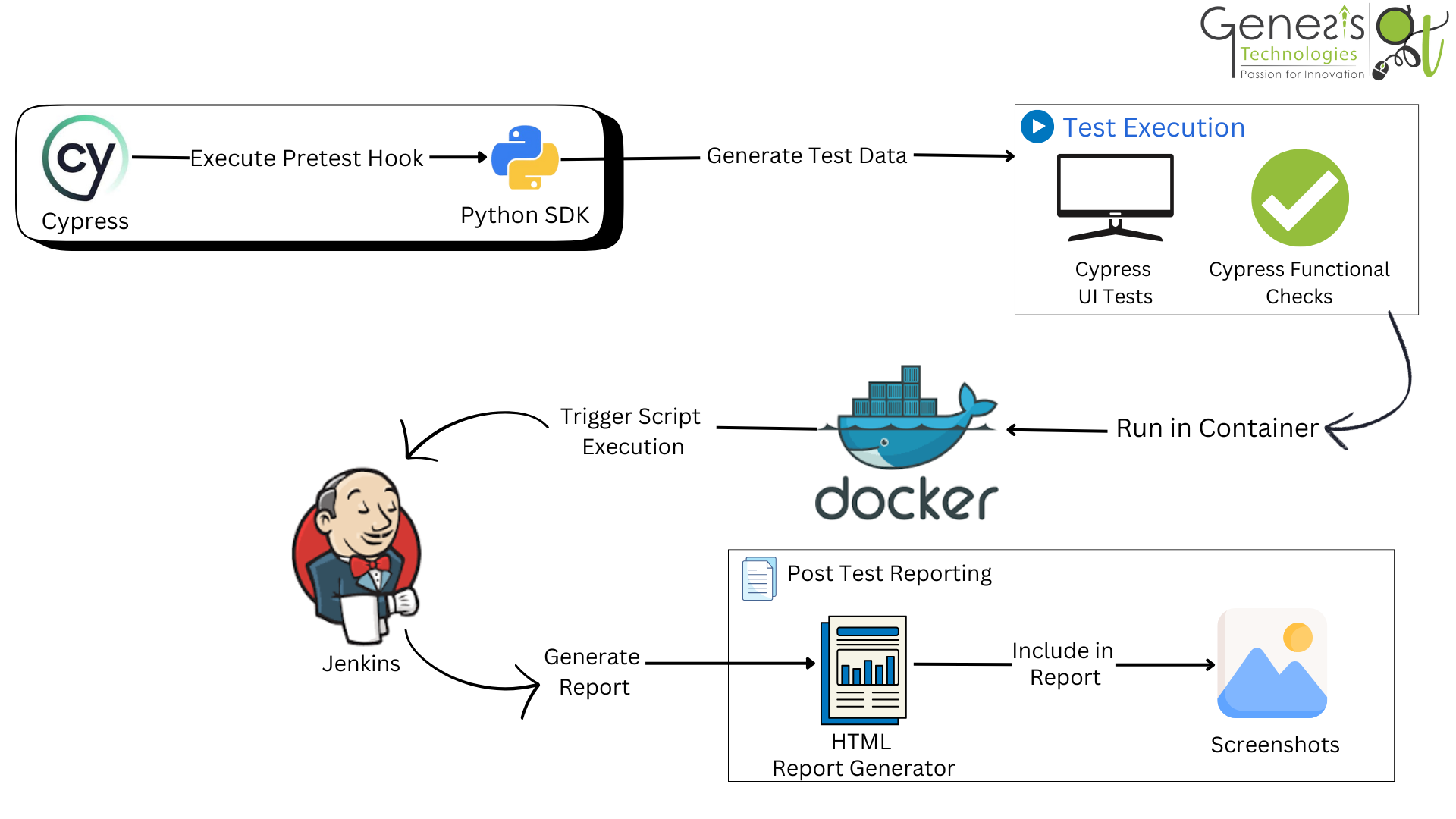
Quantifiable Benefits
Performance Metrics:
| Metric | Before (Traditional UI-Based) | After (Cypress + SDK) |
|---|---|---|
| Testing Time Cost per Test Cycle | 10 hours per test cycle $10,000 | 1 hour per test cycle $7,000 |
| Scalability | Limited | Highly Scalable |
| Bug Detection Speed | Slow | Fast (real-time insights) |
| Test Coverage | Low-Medium | Comprehensive |
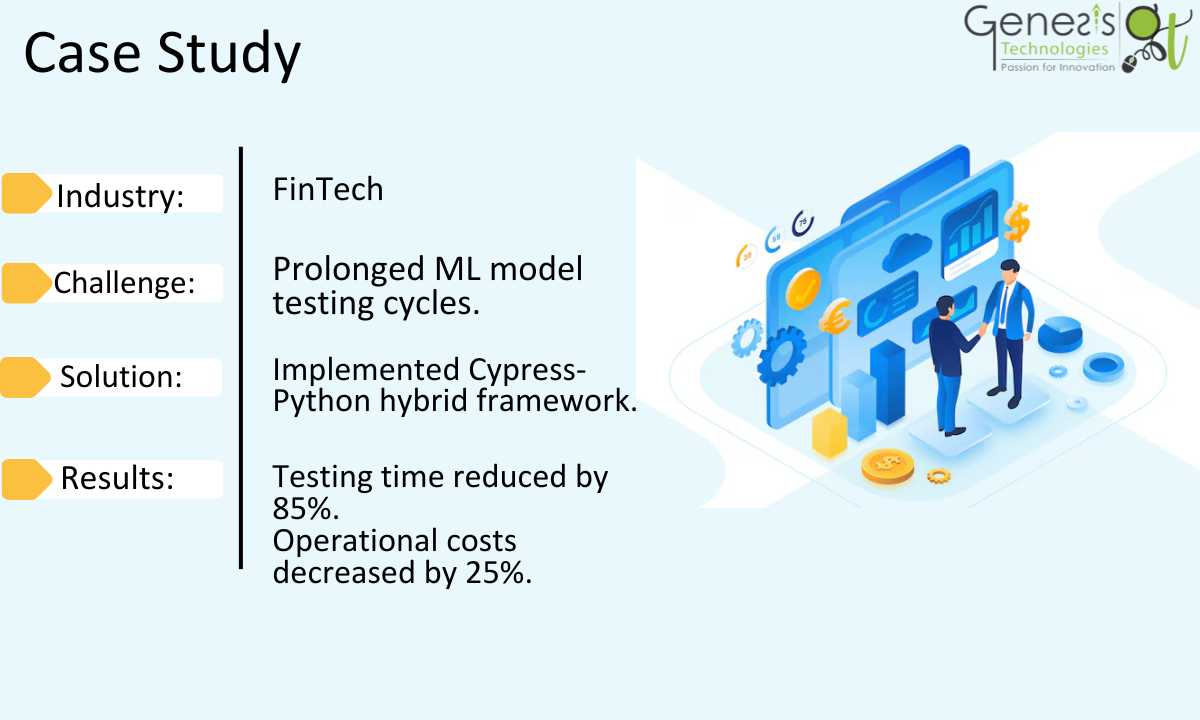
Future Outlook
Emerging Trends in ML Testing
- AI-Driven Test Automation: Using AI to predict and generate test scenarios dynamically.
- Predictive Testing: Leveraging ML to detect potential failure points before deployment.
- Cloud-Native Scalability: Enhanced integration with AWS and GCP for limitless testing capabilities.
Conclusion: Transforming ML Testing with Innovation
Our approach to ML testing automation has set a new standard for efficiency, scalability, and cost savings. By integrating Cypress, Python SDK, and containerization, we have dramatically accelerated testing cycles while ensuring model robustness.
Call to Action
🚀 Struggling with ML Testing? Let Genesis Technologies Help.
We specialize in cutting-edge testing solutions that accelerate ML testing, reduce costs, and enhance model accuracy.
🔗 Schedule a demo today! Visit Genesis Technologies to learn more.



